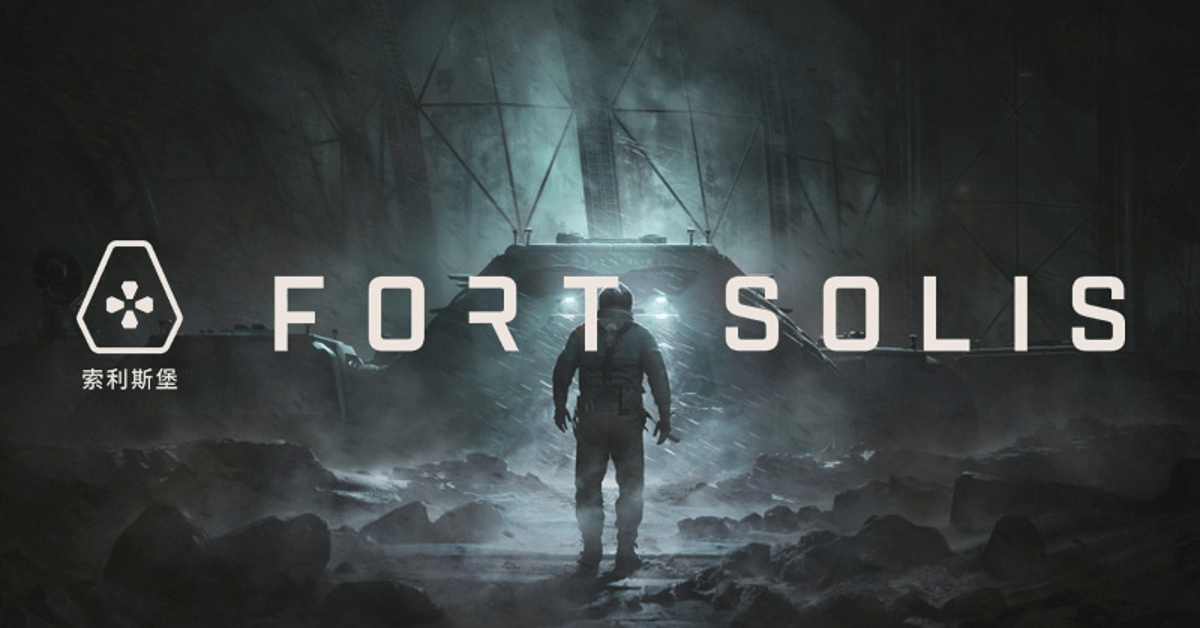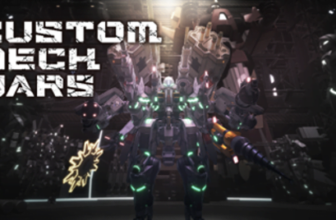
“Fort Solis” mirrors a theatrical play, merging interactivity with standout visuals and performances. It’s reminiscent of walking simulator games like the “Dark Pictures” lineup, thriving on the tense aura. With scant gameplay to bank on, the narrative, graphics, and character portrayals are pivotal.
The public first got wind of “Fort Solis” at the Summer Game Fest 2022, courtesy of Roger Clark (famed for his role as Arthur Morgan in “Red Dead Redemption 2”) and Troy Baker (known for portraying Joel in “The Last of Us”). The emphasis on stellar acting was palpable. Julia Brown, a fresh face in the gaming arena, joins the duo, rendering deep, multifaceted characters. Kudos to the developers, Fallen Leaf, for empowering the trio to mold their roles, whether through candid dialogues or recorded logs. The chemistry between Clark and Brown is palpable, reflecting a bond of mutual teasing and care. Meanwhile, Baker masterfully walks the tightrope between worry and insanity.
If you’re keen on immersing in the artistic endeavor where the protagonists shine in monologues or dialogues via communication devices, you’re in for a treat. Both Baker and Clark have proven their mettle as storytellers, and Brown seamlessly matches their energy. Even minor roles, often relegated to short videos or logs, exude a cinematic finesse.
Yet, compelling character portrayals need a gripping storyline to hold water. Jack Leary, Clark’s character, is on his concluding Mars shift as an engineer when Fort Solis’s alarm blares. His investigative journey is punctuated by inputs from colleague Jessica Barton, played by Brown. While the game’s foundation isn’t groundbreaking, the unfolding of events initially captivates the player. Leary’s foray into the Fort Solis enigma offers a mix of anticipation, sudden jolts, and snippets of action. However, the game fumbles when tying up the narrative knots. With a muddled climax, the resolution lacks the punch the plot sets up for.
Aesthetically, “Fort Solis” is a visual delight, showcasing a meticulous portrayal of Mars’s landscape and the Fort’s architecture. The game harnesses Unreal Engine 5, ensuring a seamless blend of sounds, enhancing the overarching suspenseful ambience. While the game’s environment sets the mood, facial animations falter in capturing the emotional intensity, creating a noticeable rift, especially in cutscenes.
Game mechanics, however, is where “Fort Solis” stumbles. Not everyone is a fan of walking simulators. Here, players trudge through an abandoned station, engage with numerous logs, and occasionally solve puzzles. Though unraveling the story keeps one on their toes, the gameplay often feels monotonous, exacerbated by the protagonist’s snail-paced movements.
Another hiccup was the game’s quicktime events. They proved to be challenging, often with brief windows for action, leading to player errors even when seemingly timed right. Although missing these doesn’t derail the game, the interruptions jar the experience.
It’s an anomaly for a game to prioritize theatricals over gameplay, but “Fort Solis” does precisely that. The stellar cast ensures an immersive experience. Despite the narrative’s anticlimactic finish, the graphics, ambiance, and performances might appease some. Yet, the sometimes tedious and occasionally vexing gameplay detracts from the overall experience, making it a niche attraction rather than a mainstream hit.
Set on Mars’s remote side, “Fort Solis” follows Engineer Jack Leary as he navigates the eerily silent Fort Solis after responding to an alarm, with events progressively taking a sinister turn.
“Fort Solis” is scheduled for launch on August 22, 2023, available on PC, PlayStation 5, and Mac. This review was penned based on a PS5 game version.
The Evolution of Video Gaming: A Deep Dive into “Fort Solis”
In the rapidly changing world of video gaming, the introduction of games like “Fort Solis” represents a shift from traditional gameplay mechanics to an experience more akin to an interactive movie. This deep dive will explore this innovative game, the forces behind its development, and what it signifies for the future of gaming.
Theatrical Gaming: A New Paradigm
Historically, video games were primarily about action, movement, and achieving goals within set parameters. Titles like Mario, Sonic, or even the early adventure games such as “The Legend of Zelda” presented clear objectives: get to the end, overcome obstacles, and win. However, the recent rise in the popularity of “theatrical games” like “Fort Solis” challenges this mold. These games emphasize narrative, character development, and emotion over traditional gameplay mechanics.
An In-Depth Look at “Fort Solis”
“Fort Solis” is not just another video game; it’s a blend of cinema, theater, and interactive media. Set on the remote side of Mars, the game offers a suspenseful experience as players navigate through the eerily silent Fort Solis, facing increasingly sinister events.
One of the game’s standout features is its emphasis on top-notch acting. With performances from industry giants like Roger Clark and Troy Baker, and the surprising addition of newcomer Julia Brown, the game establishes itself as a powerhouse of emotional storytelling.
But what makes “Fort Solis” particularly unique is its conscious decision to place gameplay on the backburner, focusing on performance and narrative. This prioritization reflects a bold move in an industry where intricate gameplay mechanics have long been the primary draw for gamers.
The Role of Technology
The visual richness of “Fort Solis” owes much to Unreal Engine 5. The game brilliantly captures Mars’s landscape, balancing the vast, barren terrain outside with the detailed interiors of Fort Solis. Such advancements in gaming technology have paved the way for developers to experiment beyond the traditional, offering a more immersive and emotionally resonant experience.
Yet, despite the strides in graphical technology, “Fort Solis” does have its imperfections. The disconnect in facial animations highlights the challenges of marrying exceptional vocal performances with accurate visual representations. This draws attention to an industry-wide hurdle: ensuring that as the audio and performance quality increases, the visual representation matches up.
The Changing Landscape of Gaming
The existence and popularity of a game like “Fort Solis” indicate broader changes in the gaming landscape. Today, there’s a growing subset of gamers seeking deeper emotional and narrative experiences. This shift can be attributed to several factors:
- Mature Audience: Many gamers who grew up with the earliest consoles are now adults seeking more sophisticated narratives that resonate with their life experiences.
- Influence of Cinema and TV: With TV series and films delving into complex, layered storytelling, there’s a demand for games that offer a similar depth.
- Technological Advancements: Modern gaming platforms can handle intricate narratives and visuals, allowing developers to push boundaries.
- Diverse Gaming Platforms: With the rise of mobile and indie gaming, there’s room for experimentation, leading to varied game genres and experiences.
Future Implications
The approach of “Fort Solis” might seem avant-garde now, but it could set a precedent. As gamers’ demands evolve and technology continues its relentless march forward, the line between movies, series, and games will blur further.
However, this doesn’t mean the end for traditional gaming. There will always be a place for fast-paced action games, strategy games, or simulations. Instead, the gaming world is expanding, creating niches for varied experiences.
Moreover, the lessons from “Fort Solis” are invaluable. The feedback on its gameplay, especially the quicktime events, highlights the importance of balancing narrative depth with engaging gameplay. Future games in this genre will need to consider these insights to ensure they offer both an emotive experience and enjoyable mechanics.
Concluding Thoughts
“Fort Solis” represents more than just a game; it’s a testament to the evolving nature of the video gaming world. As the industry matures, games like this will carve out their space, challenging traditional norms and pushing the boundaries of what a video game can be.
With the ever-blurring lines between various media, the future promises a world where games aren’t just pastimes but are as emotionally resonant and impactful as the best movies or novels. The evolution witnessed in “Fort Solis” is just the beginning, and the gaming community awaits with bated breath for what’s next on this exciting horizon.





